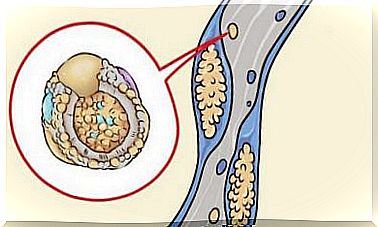Minerals In Foods For Heart Health

At present, the diet that dominates the world is the Western diet. This is characterized by a large intake of saturated fat, sodium and sugar. It therefore lacks the minerals that keep the body in balance and ensure heart health.
This is because the intake of vegetables, fruits and grains is insufficient to meet the recommended daily intake. However, why are minerals in foods so important for heart health?
According to the World Health Organization (WHO), cardiovascular disease is the leading cause of death worldwide.
As a consequence, experts recommend, in order to effectively prevent these diseases and treat them in a timely manner, to follow a healthy diet put together with regular physical activity to prevent these diseases or as additional therapy for pharmacological treatment.
What are cardiovascular diseases?
Essentially, cardiovascular disease is a group of disorders that include heart disease, cerebrovascular disease, vascular disease and vascular disease. Every year, 17.1 million people worldwide die from these ailments.
According to the WHO, 80% of the deaths associated with these disorders could have been prevented if the patient had a healthy lifestyle and also reduced his risk factors.
Significant risk factors for developing heart disease

Overall, poor eating habits, along with harmful health-related habits, are directly linked to the development of atherosclerosis. This disease consists of the formation of the accumulation of plaque deposits in the arteries, which prevents them from functioning properly.
Here are some of the factors that promote the development of atherosclerosis:
- Risk factors related to behavior: Smoking, physical inactivity, a diet rich in salt and fat and alcoholism.
- Risk factors related to metabolism: High blood pressure, diabetes mellitus, excess weight and obesity.
In that sense, leading a healthy lifestyle by changing eating habits and exercising is essential. After all, certain nutritional recommendations can help regulate metabolic disorders, as well as diet plans that control many risk factors and have an effect that protects the heart.
Among them, the most well-known Dietary Approaches to Stop Hypertension (DASH diet). In Danish it is called a blood pressure lowering diet.
DASH diet for heart health
The National Heart, Lung, and Blood Institute (NHLBI) developed the DASH diet. Overall, it is characterized by:
- Large intake of vegetables and fruits.
- Replacement of refined flour with whole grains.
- A moderate intake of fats and foods of animal origin.
- Occasional or non-existent intake of foods that contain a significant amount of sugar.
Overall, this diet modulates the primary metabolic-related factors associated with the development of cardiovascular disease. Several meta-analyzes show that this diet has a myriad of health benefits.
In fact, it lowers the incidence of cardiovascular disease, blood pressure, total cholesterol, LDL cholesterol, glycated hemoglobin, fasting plasma insulin and even body weight in clinical trials.
What are the primary minerals in foods to maintain heart health?

As you may have noticed, many nutrients affect heart health in a positive way. In this section, however, we will focus on minerals in foods that are useful, as a study published in Current Hypertension Reports emphasized.
Minerals in foods for heart health: Potassium
First, this mineral interacts with the renin-angiotensin system to alter the plasma activity of the retina. Thus, it prevents an increase in blood pressure. It also participates in the excretion of renal sodium. Therefore, it lowers the body’s endothelial dysfunction markers.
- Food sources of potassium include spinach as well as tomatoes, squash, mushrooms, bananas, nuts, avocados and chia seeds.
Minerals in food: Magnesium
This mineral acts as an inhibitor of the contraction of the smooth muscle in blood vessels, by having a vasodilating effect. Thus, the blood flows at a lower pressure through the veins and arteries.
- Food sources include nuts, dark chocolate (70% cocoa) and whole grains.
Calcium
Finally, calcium has an effect reminiscent of the drug in the group known as ACE inhibitors ( Angiotensin Converting Enzyme ). It thus inhibits contraction of the blood vessels. It also works with potassium in the secretion of renal sodium.
- Food sources include low-fat dairy products, sardines, almonds and chickpeas among others.
Conclusion
Overall, it is important to talk to a nutritionist to get an appropriate nutrition-related evaluation and diagnosis to ensure that one’s diet plan meets one’s individual needs and contributes to better health.









